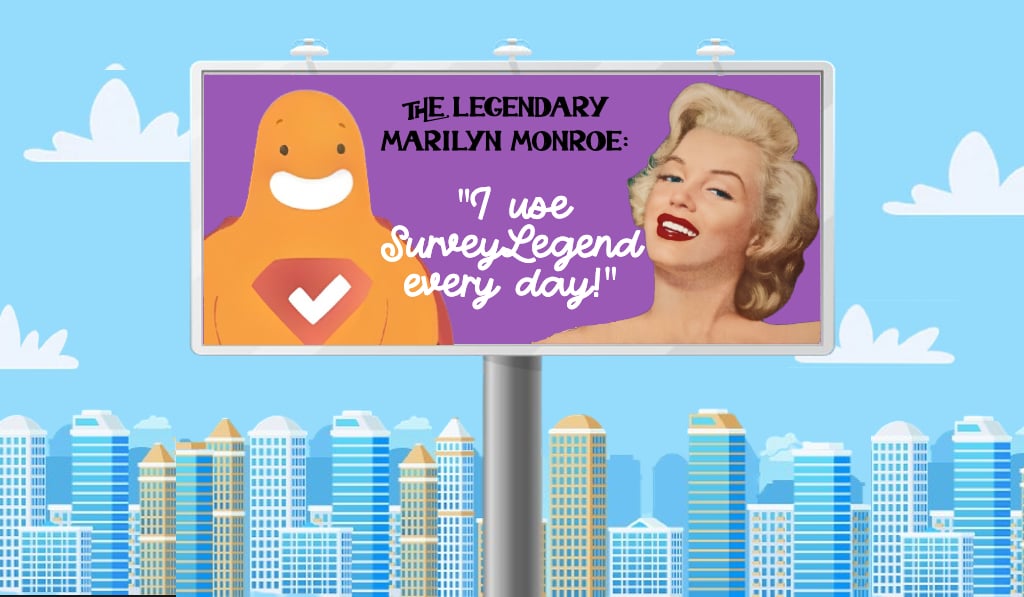The goal of any survey is to get participants to answer questions. And while you want your questions to be thought-provoking and engaging, unfortunately in doing so you may inadvertently create potentially offensive questions. This can happen for a variety of reasons, such as the language used in the questions, the topics addressed, the framing of questions, and the context in which the survey is conducted. In this blog, we’ll take a look at seven types of potentially offensive survey questions, how they can harm your survey, and how to avoid them.
Create Your FREE Survey, Questionnaire, Poll, or Quiz Now!
What is an Offensive Question?
Most of us know an offensive question when we hear one (and most of us have had the experience of being asked one, whether on a survey or not). Offensive questions typically do now show respect, empathy, or understanding towards others, and therefore may cause distress, discomfort, or anger to the person being asked.
Offensive questions on surveys, and even offensive quiz questions, often touch upon sensitive topics such as race, religion, gender, sexuality, disability, or other deeply personal matters. The questions are generally posed in a way that is disrespectful, discriminatory, or derogatory. This line of questioning can stem from ignorance, prejudice, or intentional malice, and can have a harmful impact on individuals or groups by perpetuating stereotypes, marginalizing them, or invalidating their experiences.
So, are people becoming too sensitive nowadays? According to a Pew Research Center survey, about 65% of adults believe “people being too easily offended” is a major problem today, while 53% believe that “people saying offensive things to others” is a major problem. Regardless of where you stand on the matter, it’s important to avoid offensive questions that can hurt people and your survey results.
7 Types of Offensive Questions on Surveys
To prevent a survey from becoming offensive, it’s essential to carefully consider the language, tone, and content of the questions, as well as the overall design and purpose of the survey. Here are seven types of questions to watch for, and avoid, when creating your survey.
1. Insensitive Language
The use of insensitive or disrespectful language in survey questions can offend respondents. This includes derogatory terms, stereotypes, or language that belittles or marginalizes certain groups of people.
2. Invasive Questions
Asking overly personal questions about sensitive topics without a clear and relevant purpose can make respondents feel uncomfortable or offended. Some questions to either avoid, or carefully considering your wording on and reason for asking, include:
- Personal finances or income
- Medical conditions or mental health issues
- Sexual orientation or gender identity
- Religious beliefs or affiliations
- Immigration status or citizenship
- Race, ethnicity, nationality, or cultural background
- Relationship status or family dynamics
Again, it’s very possible that some of these questions form the basis of your survey and you need to ask them, but it’s important to go about it the right way. Don’t assume anything and don’t make questions feel discriminatory.
3. Bias or Leading Questions
Questions that are biased or leading can be offensive as they imply a predetermined answer or push respondents towards a particular viewpoint. This can make respondents feel manipulated or disrespected. Read more about different types of survey bias.
4. Lack of Diversity and Inclusivity
Surveys that fail to consider the diversity of respondents or address issues relevant to all groups can be offensive. This includes excluding certain demographics or ignoring the perspectives and experiences of marginalized communities.
5. Triggering Content
Today, many television programs and movies provide trigger warnings at the start of the show or film so that viewers can prepare themselves (triggers could be anything from depictions of assault to use of derogatory words). You might also use trigger warnings on surveys if questions may touch on traumatic or distressing experiences that could be offensive and potentially harmful to respondents who have experience with such events.
6. Cultural Insensitivity
Surveys that ignore cultural differences or fail to consider the cultural context of respondents can be offensive. This includes asking questions that are inappropriate or offensive within certain cultural or religious contexts. Using certain phrases that have negative connotations can also be offensive. Often, you may not even know the history of common phrases, but others will. A few examples:
- “Rule of thumb” comes from a 1600s English law allowing men to beat their wives as long as the stick was no thicker than their thumb.
- “Drink the Kool-Aid” refers to when Jim Jones and his followers committed mass suicide by consuming a drink laced with cyanide in the 1970s.
- “Long time no see” and “no can do” were originally used to mock the broken English of Indians and the Chinese.
- “Peanut gallery,” while today used to describe people who chime in with unwanted thoughts, originally referred to a section in theaters where Black people were forced to sit.
You can find more eye-opening phrases with derogatory meanings on BestLifeOnline.
7. Misusing Data
Surveys that collect personal information without adequate privacy protections or misuse data collected from respondents can be offensive and breach trust.
Create Your FREE Survey, Questionnaire, Poll, or Quiz Now!
The Impact of Offensive Surveys Questions
So how does asking offensive survey questions hurt the surveyor? It can have several potential consequences, depending on the severity of the offense and the context in which the survey was conducted.
Negative Feedback
The survey participant may provide negative feedback directly to you or your organization, expressing their concerns about the offensive nature of the survey questions or topics. This negative feedback can damage your reputation and credibility, particularly if it becomes public or is shared widely, for example on social media.
Refusal to Participate
Offended individuals may choose not to participate in the survey or may drop out before completing it. This can lead to biased or incomplete data and will obviously impact response rates. Then, you have to go through the expense of re-writing survey questions and re-distributing it.
Damage to Relationships
Offending survey respondents can damage your relationships with them or with relevant communities or stakeholders. This can have long-term consequences for collaboration, partnership opportunities, and future research endeavors.
Survey Validity
If the offensive line of questioning leads to a significant number of respondents refusing to participate or providing biased responses, it can undermine the validity and reliability of your survey results. This may render your data unusable or require additional efforts to correct biases and mitigate the impact of non-response.
Complaints or Legal Action
In extreme cases, individuals may file complaints or take legal action against you or your organization if they believe the survey violated their rights or caused harm. This could result in legal expenses, reputational damage, and potential sanctions or penalties.
How To Ensure Your Survey Is Inoffensive
Ensuring that your survey is not offensive requires careful consideration of various factors. Here are some steps you can take to minimize the risk of your survey being offensive. Also, be sure to read our blog How To Ask Sensitive Questions on a Survey.
Review Questions Carefully
Thoroughly review each question in your survey to weed out any that could be offensive. Consider the language used, the tone of the question, and whether someone may interpret it in a way that may offend them.
Seek Feedback
Before distributing the survey, seek feedback from a diverse group of individuals, including people from different cultural backgrounds, ages, genders, and perspectives. Ask them to review the survey questions and provide input on whether any questions could be considered offensive.
Conduct Pilot Testing
Conduct pilot testing of the survey with a small sample of respondents to identify any potential issues or concerns. Monitor their reactions and feedback to gauge whether any questions are offensive or insensitive.
Use Inclusive Language
Use inclusive language that respects the diversity of your survey respondents. Avoid using terms or phrases that may exclude or marginalize certain groups of people based on factors such as race, ethnicity, gender, sexual orientation, religion, or disability.
Consider Cultural Sensitivity
Be mindful of cultural differences and sensitivities when designing survey questions. Avoid making assumptions about cultural norms or beliefs and ensure that your questions are appropriate and respectful within the cultural context of your respondents.
Provide Clear Instructions
Provide clear instructions and context for each question to help respondents understand the purpose and relevance of the survey. This can help mitigate misunderstandings or misinterpretations that could lead to offense.
Offer Response Options
When asking sensitive questions, provide response options that allow respondents to opt out or skip questions if they feel uncomfortable answering. This respects their autonomy and reduces the risk of causing offense.
Include Disclaimers
Include a disclaimer at the beginning of the survey that emphasizes your commitment to respecting respondents’ privacy, confidentiality, and dignity. Encourage respondents to contact you if they have any concerns or encounter offensive content during the survey. This is also where you might include trigger warnings if you believe you are asking questions that could cause trauma to participants.
Review Ethical Guidelines
Familiarize yourself with ethical guidelines and principles for conducting research, such as those outlined by professional associations or institutional review boards. Ensure that your survey adheres to these guidelines to minimize the risk of causing harm or offense. Read more about survey ethics here.
Create Your FREE Survey, Questionnaire, Poll, or Quiz Now!
Offensive Question Survey Example
You might be thinking, “how hard is it to not make an offensive survey?” You should be asking Facebook! The company routinely uses surveys to get feedback from their 2+ billion users. But a recent survey shocked and angered many Facebook users. Here’s a look at some of the questions and answers the social media juggernaut came up with:
- In thinking about an ideal world where you could set Facebook’s policies, how would you handle a private message in which an adult man asks a 14-year-old girl for sexual pictures?
- This content should not be allowed on Facebook, and no one should be able to see it
- This content should be allowed on Facebook, and I would not mind seeing it
- Who should decide whether an adult man can ask for sexual pictures on Facebook?
- Facebook users decide the rules by voting and tell Facebook
- Facebook decides the rules on its own
The backlash was swift. Jonathan Haynes, at the Guardian newspaper tweeted: “[This is] the best Facebook can offer here? Not, y’know, calling the police?” Stacey Steinber with the University of Florida said the Facebook survey sent a “terrible message” and normalized predatory behavior. And Diana Graber, founder of Cyber Civics, said “It is hard to believe that Facebook could be so utterly tone-deaf… The fact that [they] would even pose this question theoretically is disgusting.”
This example simply illustrates that if a company as large as Facebook can make such an egregious error when creating a survey, it can happen to any of us.
Conclusion
Asking offensive survey questions can upset participants and hurt your survey – potentially even your company as a whole. So, be sure to always consider the language, tone, and content of your survey questions. You shouuld also conduct pre-testing with a diverse group of respondents to identify and address potential sources of offense. Additionally, being responsive to feedback and willing to revise or retract offensive survey questions can demonstrate accountability and a commitment to ethical research practices.
Ready to create your survey? Start today with SurveyLegend, the online survey platform that lets you easily create beautiful, secure, and responsive surveys, using various types of questions and images, and always providing robust analytics at the conclusion of the survey.
Have you ever been asked an offensive question on a survey? Have you accidentally asked an offensive survey question before? Let us know what happened in the comments!
Create Your FREE Survey, Questionnaire, Poll, or Quiz Now!
Frequently Asked Questions (FAQs)
Offensive questions often touch upon sensitive topics such as race, religion, gender, sexuality, disability, or other deeply personal matters in a way that is disrespectful, discriminatory, or derogatory. This line of questioning can stem from ignorance, prejudice, or intentional malice, and can have a harmful impact on individuals or groups by perpetuating stereotypes, marginalizing them, or invalidating their experiences.
There is a segment of people who actively search for things to be angry about and being a “victim” can be appealing to some. It gives them a sense of moral superiority, and playing the victim card means lots of attention, sympathy, and validation.
It’s also more common today for people to become offended by microaggressions – subtle behaviors, comments, or actions that demean or insult marginalized groups. However, oftentimes these microaggressions are unintentional, but the person does not have a chance to clear things up before it becomes a large deal.
Finally, the rise of social media has allowed people to curate their feeds, following only people and/or news outlets with similar beliefs. When all people see are opinions they already agree with, it creates an “echo chamber” effect in which they become convinced that any dissenting view is not just different but wrong.
Read questions carefully, seek out feedback, conduct survey pilot testing, use inclusive language and consider cultural sensitivity, offer various response options, and include disclaimers/trigger warnings.




